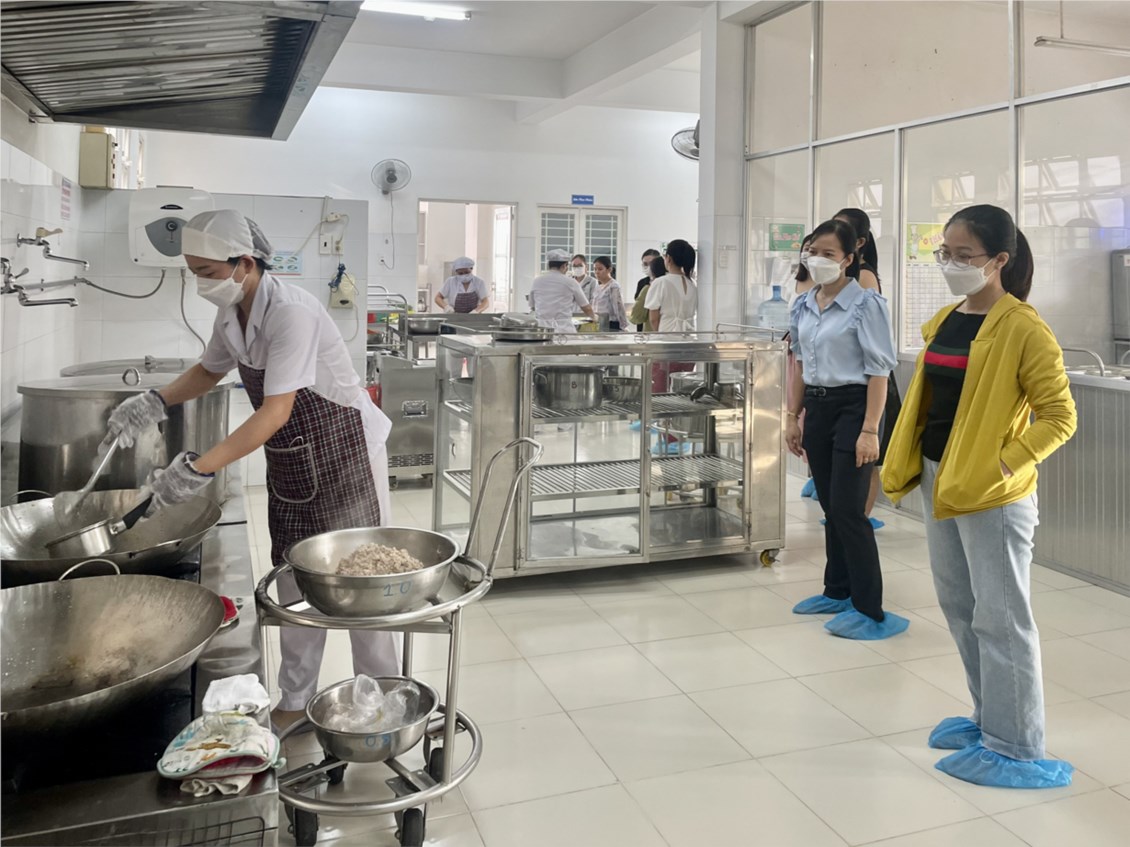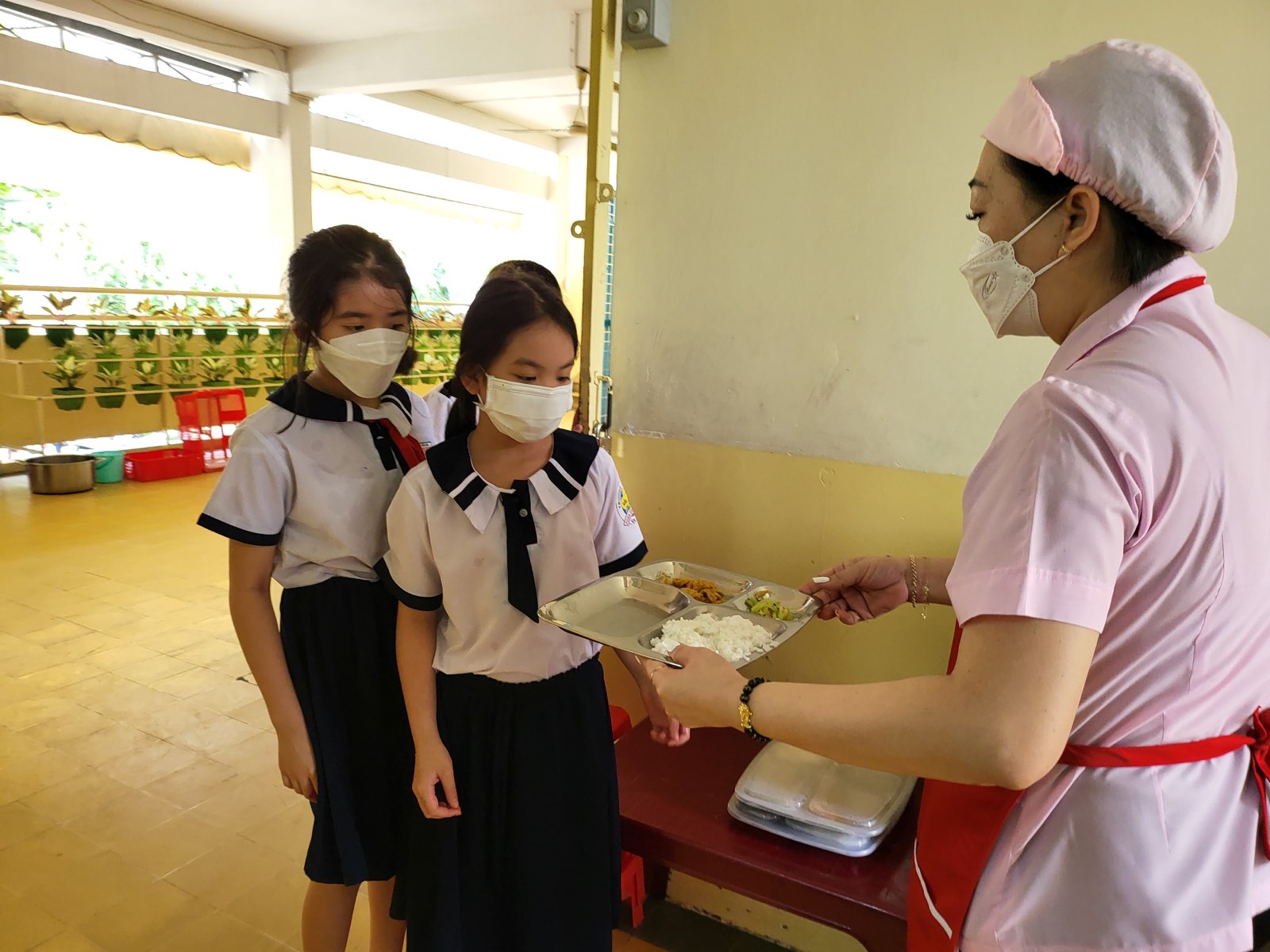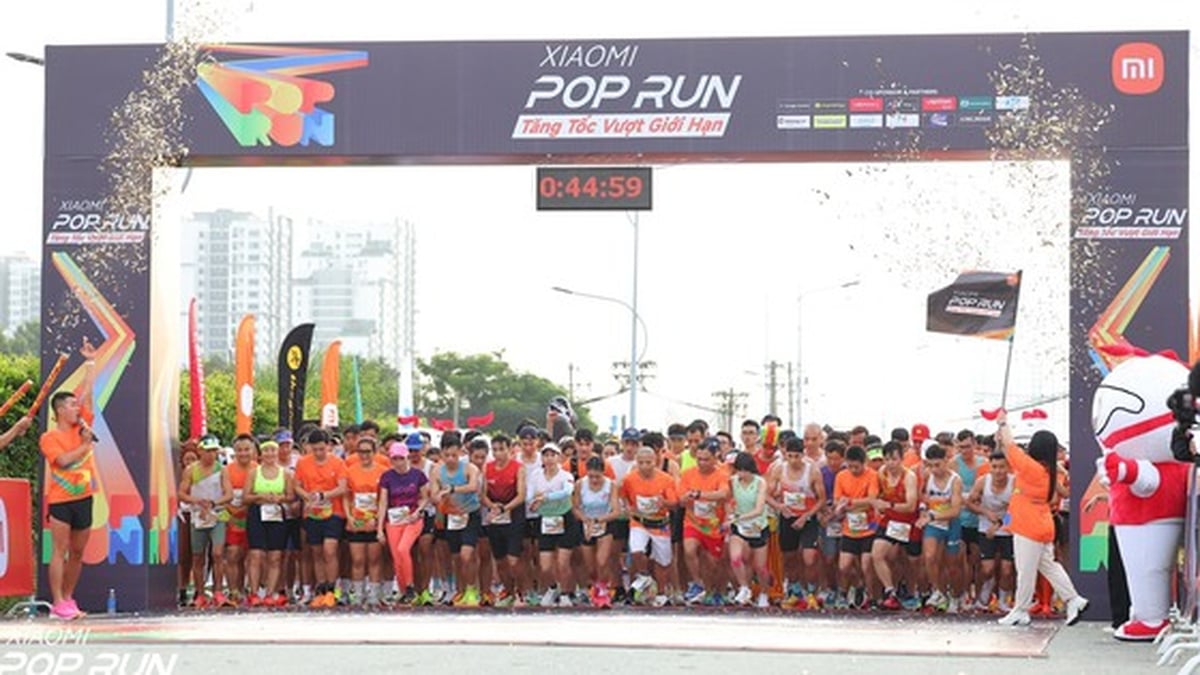
Parents of students visit the school's canteen in Go Vap District, Ho Chi Minh City
On April 25, the Ho Chi Minh City Department of Education and Training conducted a survey on student satisfaction with school meals and toilets.
According to the request of the Department of Education and Training of Ho Chi Minh City, primary and secondary schools in districts and Thu Duc City, along with more than 100 high schools, must conduct this survey. Each school selects 200 students from different grades to participate.
Specifically, each student will comment on the student restroom area (safety, cleanliness, basic facilities) and the quality of the school's meals with 5 levels: Very satisfied, satisfied, normal, dissatisfied, very dissatisfied.
Students can give reasons for dissatisfaction with the toilet facilities and lunch facilities.

Students have the right to voice their satisfaction or dissatisfaction with their meals and toilets.
To improve the quality and effectiveness of someeducational services, the Ho Chi Minh City Department of Education and Training also requires schools to report on parents' participation in inspection and supervision to ensure school hygiene and food safety for boarding meals.
Mr. Duong Tri Dung, Deputy Director of the Department of Education and Training of Ho Chi Minh City, said that schools need to strengthen medical and environmental sanitation work to prevent and stop diseases transmitted by unsafe water sources.
The school must mobilize teachers, education managers, students to participate in cleaning the school yard, collecting waste around the school yard, cleaning and disinfecting classrooms; and make plans to maintain warranty and maintenance activities for clean water and sanitation facilities.
In addition, schools must strengthen close coordination with families and local authorities in educating and guiding children and students to comply with regulations on food safety, personal hygiene, and environmental sanitation.
According to Mr. Dung, localities need to strengthen inspections and checks of the education-health sector, mobilize the participation of parents in monitoring student health care, food safety in meals at boarding schools, and school hygiene. Mr. Dung emphasized paying attention to the toilet area; promptly detecting and handling violations of food safety and hygiene conditions in schools to ensure the health of children and students.
Source link


































































































Comment (0)